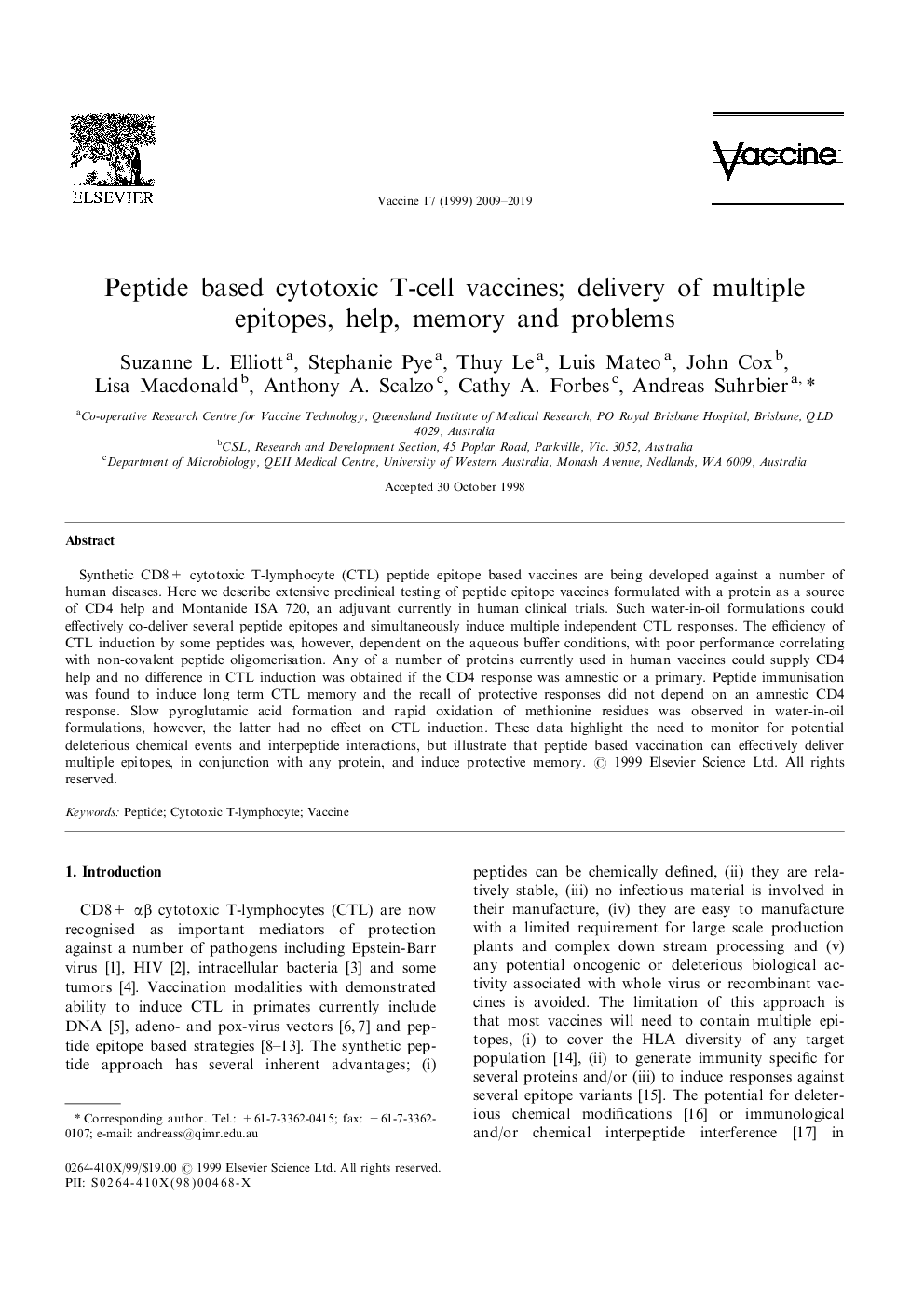| Article ID | Journal | Published Year | Pages | File Type |
|---|---|---|---|---|
| 2412621 | Vaccine | 2009 | 11 Pages |
Synthetic CD8+ cytotoxic T-lymphocyte (CTL) peptide epitope based vaccines are being developed against a number of human diseases. Here we describe extensive preclinical testing of peptide epitope vaccines formulated with a protein as a source of CD4 help and Montanide ISA 720, an adjuvant currently in human clinical trials. Such water-in-oil formulations could effectively co-deliver several peptide epitopes and simultaneously induce multiple independent CTL responses. The efficiency of CTL induction by some peptides was, however, dependent on the aqueous buffer conditions, with poor performance correlating with non-covalent peptide oligomerisation. Any of a number of proteins currently used in human vaccines could supply CD4 help and no difference in CTL induction was obtained if the CD4 response was amnestic or a primary. Peptide immunisation was found to induce long term CTL memory and the recall of protective responses did not depend on an amnestic CD4 response. Slow pyroglutamic acid formation and rapid oxidation of methionine residues was observed in water-in-oil formulations, however, the latter had no effect on CTL induction. These data highlight the need to monitor for potential deleterious chemical events and interpeptide interactions, but illustrate that peptide based vaccination can effectively deliver multiple epitopes, in conjunction with any protein, and induce protective memory.
